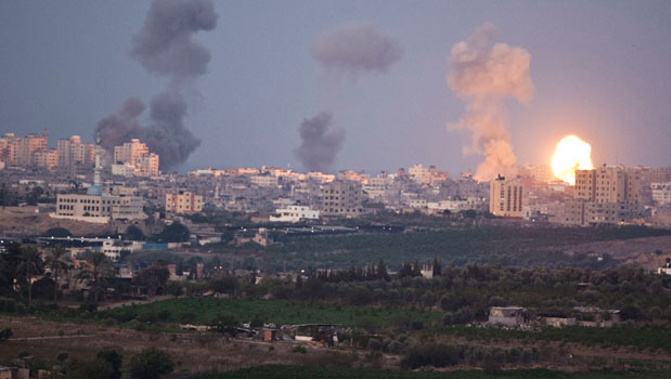
The transition process into a newly formed Government has been blamed for the country's "careful and cautious" response to the ongoing conflict in the Middle East between Israel and Hamas, foreign experts have concluded.
More than 1400 people in Israel have been killed in the war — mostly civilians slain during the Hamas incursion that shattered Israelis’ sense of security.
The Health Ministry run by Hamas says more than 4100 people have been killed in Gaza since the war began. That includes a disputed number of people who died in a hospital explosion earlier last week.
Talking to Early Edition with Kate Hawkesby on Tuesday, international geopolitical analyst Geoffrey Miller said New Zealand has made the minimum response to the war, with caretaker Prime Minister Chris Hipkins condemning Hamas' initial attack on Israel and calling for restraint from Israel on its response.
There was also an announcement last week of a $5 million humanitarian aid contribution.
"Beyond that, I thought the ministry's response has been reticent," said Miller.
"That is by design because it's a caretaker convention, we're waiting very much for the formation of a new Government to make a much fuller response."
Miller said caretaker Governments have been historically awkward and "never ideal" when it comes to handling such affairs, he highlighted the impact of it coming at a time when the Middle East was experiencing its most heavy shake-up in the last 50 years.
"Given the situation, we'd probably like to see our Government speaking out a bit more about it, but I guess it is the price of democracy - we have to wait for all the special votes to be counted," he said.
"But look, this conflict is sadly likely to be raging in another couple of weeks and there will be plenty of opportunity for the new Government to speak up."
With National's upcoming transition into power, likely in coalition with ACT and possibly NZ First, Hawkesby floated the idea of a joint political response - to which Miller said the idea was interesting but ultimately flawed.

He believed the main issue would arise when it came to the amount of input it would require from so many parties with likely different perspectives on the issue.
"It quickly becomes a wheel deal when you're dealing with half the parliament and you end up with a compromised statement."
Miller thought the more appropriate course of action for the incoming Government to take at this stage was to do its homework on the history of the conflict and receive full briefings on the matter.
This would position the Government to be ready to go once in power.
It would also prepare whoever will be appointed as the new Government's Foreign Affairs Minister - who Miller speculated could possibly be Judith Collins or Winston Peters - to be ready for making the trip to the Middle East and "be the eyes and ears" for those next in charge.
"We can't say this is someone else's problem," said Miller.
"This crisis poisons the entire Middle East and in many ways the entire world, and with sadly all-to-frequent regularity."
Muslim and Jewish communities have reported feeling vulnerable in New Zealand as the conflict escalates, and spy agencies reach out to some groups - but not others.
The war’s ripple effects have so far been contained to small and relatively-peaceful protests here in Aotearoa, but communities - including those who sounded the alarm before the March 15 attacks in 2019 in Christchurch - say this could change.
Hawkesby asked Miller if New Zealand would simply follow the lead of other countries when it comes to handling matters such as Middle Eastern conflicts, Miller responded with a recollection of how New Zealand handled Israeli-Palestinian matters back in 2015.
"New Zealand was on the United Nations Security Council at the time and Murray McCully, the Foreign Minister from National, did lead considerable efforts on the Israeli-Palestinian issues," said Miller.
"I do think we have a role to play in finding a solution and in the end we do need a long-term, two-state, political solution to this conflict otherwise it will just keep coming back to haunt us."
Miller said at this stage, the world was waiting for Israel to make a ground invasion of Gaza, but New Zealand was waiting for the country's new leadership to respond to such developments.
"You won't have thought the Middle East would be at the top of the new Government's foreign policy agenda but it certainly will be," he said.
"We need a strategy, we need a plan and we need a new Government to do its homework right now - ready to go once it is formed."
Take your Radio, Podcasts and Music with you









